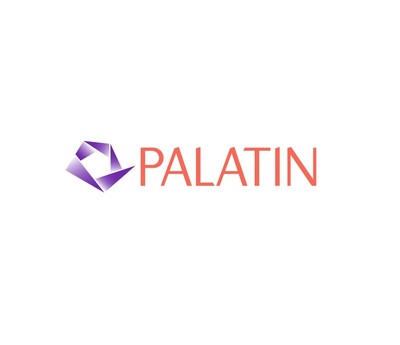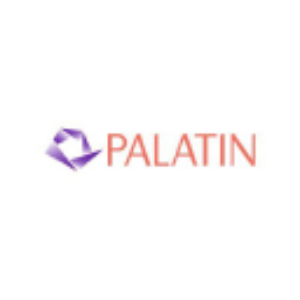Palatin Hosting Key Opinion Leader Webinar in Role of Melanocortin Agonists in Inflammation and the Treatment of Ocular Indications
Palatin Technologies, Inc. (NYSE American: PTN) announced a KOL webinar focusing on melanocortin agonists for ocular indications, particularly PL9643 for dry eye disease (DED). Scheduled for May 21, 2021, the webinar will feature experts discussing the biological underpinnings and clinical development of PL9643. A Phase 3 study for PL9643 is anticipated in the latter half of 2021. The event aims to showcase the company's advancements in treating eye inflammation and highlight the unmet medical needs in this field.
- Announced a KOL webinar to discuss PL9643's clinical development.
- Phase 3 clinical study of PL9643 planned for H2 2021.
- Focus on addressing significant unmet medical needs in dry eye disease.
- Dependence on successful clinical trial outcomes for PL9643.
- Potential risks associated with regulatory approvals and market competition.
Insights
Analyzing...
CRANBURY, N.J., May 14, 2021 /PRNewswire/ -- Palatin Technologies, Inc. (NYSE American: PTN), a biopharmaceutical company developing first-in-class medicines based on molecules that modulate the activity of the melanocortin peptide receptor system, today announced that it will host a key opinion leader (KOL) webinar on melanocortin agonists for treating ocular indications, with a primary focus on PL9643, the Company's lead asset. A Phase 3 clinical study of PL9643 in patients with dry eye disease (DED) is planned for the second half of calendar year 2021. The webinar will take place on Friday, May 21, 2021 at 10:00 am Eastern Time.
The webinar introduces the Company's growing portfolio of melanocortin agonists to treat the harmful effects of inflammation in the eye. The event will feature presentations by KOLs Andrew W. Taylor, Ph.D., Boston University; Eric Donnenfeld, MD, Ophthalmic Consultants of Long Island; George Ousler, Ora Clinical; and Peter K. Kaiser, MD, Cleveland Clinic. Dr. Taylor will discuss the biology of the melanocortin system in the eye, Dr. Donnenfeld will discuss the dry eye treatment landscape and unmet medical need, as well as PL9643 Phase 2 Study data. Mr. Ousler will discuss the PL9643 Phase 3 program and study design. Dr. Kaiser will finish with retinopathy pre-clinical data and positioning.
In addition, John Dodd, Ph.D., Palatin's Sr. VP Research, will discuss Palatin's developing portfolio of melanocortin agonists.
Carl Spana, Ph.D., President and CEO of Palatin, will moderate the webinar and give a brief corporate update.
A live question and answer session will follow the formal presentations.
To register for the webinar, please click here.
About the Key Opinion Leaders
Andrew Taylor is associate dean of research and professor of ophthalmology at Boston University School of Medicine. A large part of his research effort has been to characterize the immunosuppressive and immunoregulating factors within immune privilege tissues. Through immunochemical and biological analysis of aqueous humor, the fluid filling the anterior chamber of the eye, he and his group have identified several potent immunoregulating and immunosuppressing neuropeptides that 1) suppress the activation of effector Th1 cells, 2) suppress the activation and the inflammatory activity of macrophages, and 3) mediate the induction of antigen-specific regulatory T cells.
His research has found constitutively present neuropeptides in the immune privileged eye, including alpha-melanocyte stimulating hormone (a-MSH), vasoactive intestinal peptide, calcitonin gene related peptide, and somatostatin. Collectively, the neuropeptides in aqueous humor suppress activation of delayed type hypersensitivity of adaptive immunity, and endotoxin activation of macrophages in innate immunity. Individually, the neuropeptides target different cells and stages in the induction of an immune response. Also, his laboratory has data suggesting a role for the ocular neuropeptides in the regulation of macrophage functionality in the immune privileged eye.
Professor Taylor is finding that within the ocular microenvironment the activation of macrophages to pathogens does not promote inflammation but promotes suppressor functionality in the macrophages. These macrophages respond to pathogens without mediating inflammation or activating T cells. Moreover, the macrophages produce anti-inflammatory cytokines, suppress and possibly induce apoptosis in activated T cells, and produce enzymes associated with wound repair. Preliminary evidence suggests that this is mediated by neurotransmitters of the sympathetic nervous system, norepinephrine, and neuropeptide Y along with a-MSH and somatostatin.
As Senior Vice President of Anterior Segment at Ora, George Ousler oversees all dry eye clinical programs, lending his therapeutic knowledge and expertise to see each development project through to completion. He develops clinical models and regulatory pathways for the evaluation of dry eye therapies and has studied many of the agents under investigation. The Dry Eye Department includes nearly 60 team members who work with global clients in the U.S., Europe, and Asia, including Japan, China, and South Korea.
George has more than 20 years of pioneering pharmaceutical development around dry eye. He has authored more than 250 publications on the topic and has been invited to present his research at numerous national and international symposia. He also holds several patents on techniques, formulations, and methods around dry eye and related conditions.
During his time at Ora, George has been pivotal in the development and success of U.S. Food and Drug Administration-approved products to treat dry eye, including Xiidra® and TrueTear™ Intranasal Tear Neurostimulator. He often is called on to consult on worldwide drug development and registration, and frequently interacts with several regulatory agencies, including the U.S. FDA, the European Medicines Agency, the China Food and Drug Administration and the Pharmaceuticals and Medical Device Agency (Japan).
Earlier positions in Ora's Dry Eye Department include Director, Senior Clinical Manager, Clinical Manager and Clinical Research Associate.
George serves on several noted dry eye research committees and Scientific Advisory Boards. He is a member of several ophthalmic professional organizations, including the Association for Research in Vision and Ophthalmology, the Sjögren's Society and the Tear Film & Ocular Surface Society and is a reviewer for numerous scientific journals.
Peter K. Kaiser, M.D., is a Staff member of the vitreoretinal faculty of the Cole Eye Institute in the Department of Ophthalmology at Cleveland Clinic's main campus. He was appointed in 1997. Dr. Kaiser is the Founding Director of the Digital Optical Coherence Tomography (OCT) Reading Center at the Cole Eye Institute.
Dr. Kaiser received his medical degree magna cum laude from Harvard Medical School in Boston, Mass. He completed an internship in internal medicine at Massachusetts General Hospital, an ophthalmology residency at the Massachusetts Eye and Ear Infirmary in Boston and a retinal fellowship at Bascom Palmer Eye Institute in Miami, Florida.
Actively involved in retinal clinical research, Dr. Kaiser is study chairman of 4 major, multi-center, international clinical trials and is a principal investigator in multiple other trials. He serves on numerous scientific advisory boards and addresses his research interests as an invited speaker at national and international conferences. Dr. Kaiser is a major contributor to medical literature having authored several ophthalmology texts, and more than 200 book chapters, original reports, electronic publications, and abstracts. He is an associate editor of the American Journal of Ophthalmology, and serves on the editorial boards of Retina, Retina Today, Retinal Physician and Ocular Surgery News.
Dr. Kaiser has been recognized by the American Academy of Ophthalmology and American Society of Retina Specialists with Achievement and Senior Achievement Awards and is listed in the "Best Doctors in America" list.
Eric Donnenfeld, M.D. is a trustee of Dartmouth Medical School and a clinical professor of ophthalmology at NYU. He was a resident and Chief Resident at Manhattan Eye, Ear and Throat Hospital and completed a Cornea Fellowship at Wills Eye Hospital in 1985.
Dr. Donnenfeld is the Editor-in-Chief of EyeWorld. He has written over 200 peer review papers on cornea, external disease, cataract, and refractive surgery, and 40 book chapters and books. He is on the editorial board of 9 journals and has participated in over 60 FDA studies.
Dr. Donnenfeld is a National Medical Director of TLC laser centers and Surgical Director of the Lions Eye Bank for Long Island. He served as president of Nassau Surgical Society, cornea section of ASCRS, the International Ocular Microbiology and Immunology Group, the Ophthalmology Division of the Nassau Academy of Medicine, and many other professional societies.
About Melanocortins and Inflammation
The melanocortin receptor ("MCr") system is hormone driven, with effects on food intake, metabolism, sexual function, inflammation, and immune system responses. There are five melanocortin receptors, MC1r through MC5r. Modulation of these receptors, through use of receptor-specific agonists, which activate receptor function, or receptor-specific antagonists, which block receptor function, can have significant pharmacological effects.
Many tissues and immune cells located in the eye express melanocortin receptors, empowering our opportunity to directly activate natural pathways to resolve disease inflammation.
About Dry Eye Disease (DED)
Dry eye disease is a common inflammatory disease that, left untreated, can become extremely painful and lead to permanent damage to the cornea and vision. Dry eye disease affects the cornea and conjunctiva of the eye resulting in irritation, redness, pain, and blurred vision. It is estimated to affect over 20 million people in the United States. The disease is characterized by insufficient moisture and lubrication in the anterior surface of the eye, leading to dryness, inflammation, pain, discomfort, irritation, diminished quality of life, and in severe cases, permanent vision impairment. Existing therapy for dry eye disease is generally regarded as inadequate by many physicians and patients, and often requires weeks or months to demonstrate activity.
About Palatin
Palatin is a biopharmaceutical company developing first-in-class medicines based on molecules that modulate the activity of the melanocortin and natriuretic peptide receptor systems, with targeted, receptor-specific product candidates for the treatment of diseases with significant unmet medical need and commercial potential. Palatin's strategy is to develop products and then form marketing collaborations with industry leaders to maximize their commercial potential. For additional information regarding Palatin, please visit Palatin's website at www.palatin.com
Forward-looking Statements
Statements in this press release that are not historical facts, including statements about future expectations of Palatin, such as statements about market potential of Vyleesi and other Palatin products in development, clinical trial results, potential actions by regulatory agencies including the FDA, regulatory plans, development programs, proposed indications for product candidates, market potential for product candidates, and potential adverse impacts due to the global COVID-19 pandemic such as delays in regulatory review, manufacturing and supply chain interruptions, adverse effects on healthcare systems and disruption of the global economy, are "forward-looking statements" within the meaning of Section 27A of the Securities Act of 1933, Section 21E of the Securities Exchange Act of 1934 and as that term is defined in the Private Securities Litigation Reform Act of 1995. Palatin intends that such forward-looking statements be subject to the
safe harbors created thereby. Such forward-looking statements involve known and unknown risks, uncertainties and other factors that could cause Palatin's actual results to be materially different from its historical results or from any results expressed or implied by such forward-looking statements. Palatin's actual results may differ materially from those discussed in the forward-looking statements for reasons including, but not limited to, Palatin's ability to establish and maintain the capability for manufacturing, marketing and distribution of Vyleesi, sales of Vyleesi in the United States and elsewhere in the world, results of clinical trials, regulatory actions by the FDA and other regulatory and the need for regulatory approvals, Palatin's ability to fund development of its technology and establish and successfully complete clinical trials, the length of time and cost required to complete clinical trials and submit applications for regulatory approvals, products developed by competing pharmaceutical, biopharmaceutical and biotechnology companies, commercial acceptance of Palatin's products, and other factors discussed in Palatin's periodic filings with the Securities and Exchange Commission. Palatin is not responsible for updating for events that occur after the date of this press release.
![]() View original content to download multimedia:http://www.prnewswire.com/news-releases/palatin-hosting-key-opinion-leader-webinar-in-role-of-melanocortin-agonists-in-inflammation-and-the-treatment-of-ocular-indications-301291531.html
View original content to download multimedia:http://www.prnewswire.com/news-releases/palatin-hosting-key-opinion-leader-webinar-in-role-of-melanocortin-agonists-in-inflammation-and-the-treatment-of-ocular-indications-301291531.html
SOURCE Palatin Technologies, Inc.








